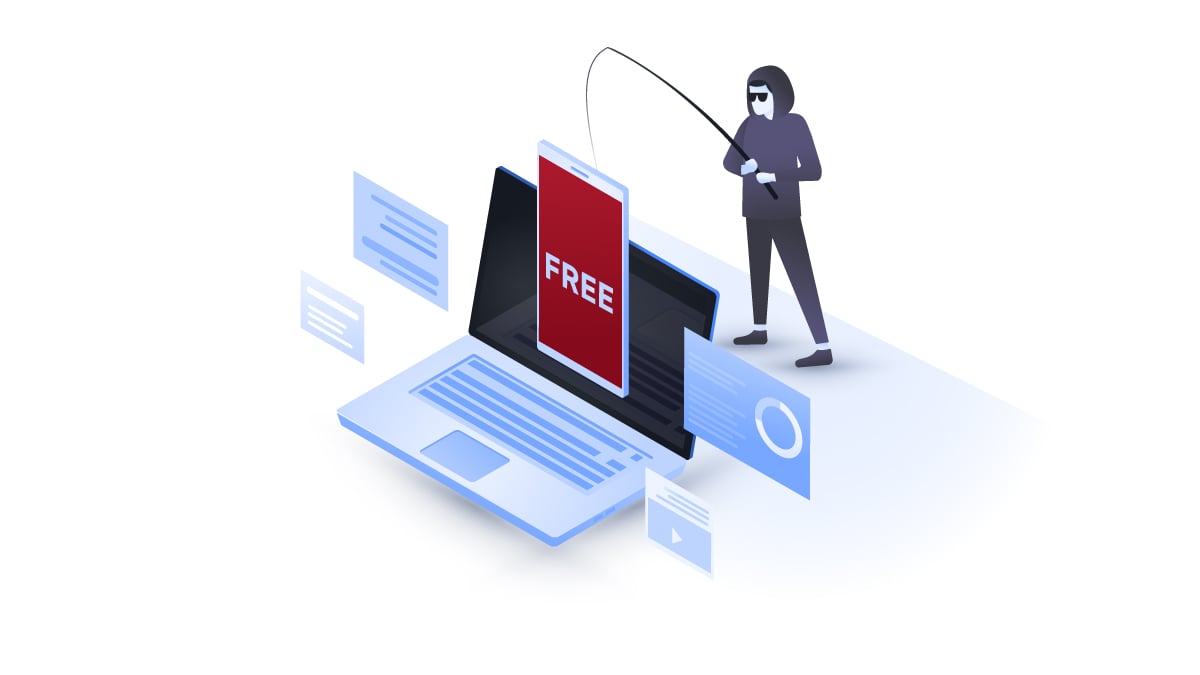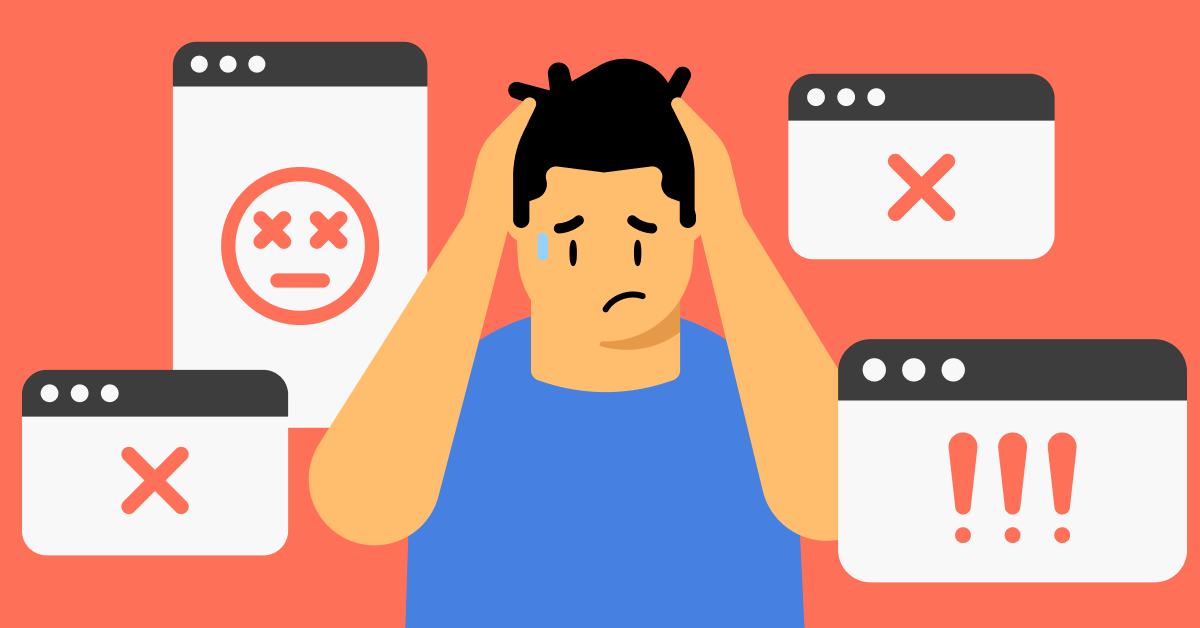Does a VPN protect you from hackers?
A VPN boosts your online security and privacy in many ways — from encrypting your traffic to hiding your IP address. But does it protect you from hackers? Find out if a VPN can shield you from cyberattacks and what other security measures you can take to protect yourself.
Contents
How does a VPN protect you from hackers?
The good news is that a VPN can help protect you against several types of cyberattacks. By increasing your security and privacy, a VPN makes it more difficult for hackers to target you. Let’s look at the specific functions of a VPN and how they boost your protection against hackers.
1. Encryption
A virtual private network secures your internet traffic by sending it through an encrypted VPN tunnel, which makes the data unreadable. VPN encryption is one of the most effective defenses against hackers because encrypted traffic is more difficult to intercept.
While all VPNs encrypt your traffic, not all offer the same level of encryption. For the best protection, choose a VPN with the strongest encryption, such as AES-256 (also used by governments and military organizations).
2. Hiding your IP address
Your IP address reveals a lot of information about you, and it could be used to launch cyberattacks. A virtual private network changes your IP address to the VPN server’s, keeping your real IP address hidden as you browse the web. If you hide your IP, hackers can’t use it to target you.
3. Ad blocking
While VPNs typically don’t block ads, some VPN providers offer additional ad-blocking features. For example, NordVPN’s Threat Protection Pro blocks annoying ads, pop-ups, malicious sites, and intrusive web trackers to make you even safer online. This additional feature may protect you from accidentally landing on a compromised website or downloading malware from infected ads.
4. Kill Switch
Many VPN providers offer Kill Switch — a feature that stops your traffic from being exposed if your VPN connection drops. Sometimes, a VPN connection may drop for a moment without you even noticing. When this happens, the Kill Switch feature protects your data from being exposed by temporarily suspending your internet connection.
5. Secure protocols
You can often tell how secure a VPN is based on its protocols. Choose a VPN that uses secure, reliable protocols such as OpenVPN and WireGuard. They’re known globally for their strong security and excellent speeds.
The WireGuard protocol comes in various forms. For example, NordVPN has developed its own version of a WireGuard-based protocol, NordLynx. This protocol provides users with ultra-fast speeds while also delivering top-level security. Learn more about the best VPN protocols.
Common cyberattacks a VPN may prevent
While a VPN cannot protect you from every online threat, there are several key areas where it can help. Here’s what cyberattacks may be avoided with a VPN.
Man-in-the-middle attacks
Man-in-the-middle attacks involve hackers intercepting, viewing, or even tampering with your data while it’s in transit. However, with a good VPN on your device, your internet activity will be encrypted, meaning hackers won’t be able to view it — even if they intercept it.
DDoS attacks
A VPN may also help prevent distributed denial-of-service (DDoS) attacks — flooding a network with artificially inflated traffic to overload servers and crash websites. A VPN hides your IP address, and without your IP the attacker can’t target your network with a DDoS attack.
Fake Wi-Fi hotspots
Hackers may set up fake hotspots, pretending to be the Wi-Fi for a legitimate business (e.g., a cafe or a train station). When users connect to them, hackers can view their data as it passes through the network. Since a VPN encrypts your data before it leaves your device, hackers won’t be able to view any personal information even if you connect to a fake hotspot. Find out more about how a VPN protects you on public Wi-Fi.
Remote hacking
Remote hacking is when hackers gain unauthorized access to a device or network from a distance. They may do so in many ways, including using your IP address. Because a VPN hides your real IP address, it becomes very difficult for hackers to launch a remote attack on you.
Session hijacking
When you log into an online platform, the website creates a session ID, allowing you to stay logged in for a while. While this ID is convenient, if a hacker gets hold of it, they may sneak into your account. Since a VPN encrypts your online activity, it becomes very difficult for hackers to steal your session ID in the first place.
Which cyber threats can’t be prevented by a VPN?
VPNs are extremely useful, but it’s important to understand their limitations. They can protect your data while it’s traveling from your device to the VPN server and back. They cannot combat hackers if they have directly accessed your phone or are waiting on the destination side when your data arrives. Here’s what a VPN can’t protect you from.
Human mistakes
Unfortunately, all the cybersecurity tools in the world can’t protect you from your own mistakes. If you accidentally click on malicious links or turn off your antivirus while browsing a high-risk site, not even the best VPN can protect you.
Malware
Hackers may use malware and exploit kits — malicious programs that can give them access to your device. This software is typically downloaded directly onto a device when you accidentally click on a malicious ad or link. Once the malware is installed, a hacker can monitor your data directly — even if it’s encrypted once it’s in transit.
Phishing
Phishing is another type of attack a VPN doesn’t typically prevent. Hackers may spam people with phishing emails, masquerading as legitimate businesses (e.g., banks) and coercing their victims into clicking on a link. Clicking the link automatically downloads malware or exposes their login credentials — and a VPN can’t do much to help. Unless you use advanced protection from phishing by NordVPN.
What else can protect me against hackers?
While a VPN can protect you against various cyber threats, just connecting to a VPN server is not enough. Here are several other important online security precautions to help protect you from hackers.
- Use a password manager. A strong password is a crucial step in protecting your online accounts. Password managers help you manage your passwords easily and securely. Choose a reliable password manager (like NordPass) to boost your account security.
- Enable two-factor authentication. Two-factor authentication secures your accounts with two “factors” — your normal password and something else (e.g., a fingerprint scan or a one-time code). Make sure you set up 2FA on all your accounts for extra security.
- Don’t use unofficial apps. Unofficial apps may contain malware or try to trick users into exposing their personal data. Even NordVPN scams exist, with unofficial apps and cracked NordVPN accounts circulating online. Avoid these apps as they may put you at risk — and always stick to the official app stores for downloads.
- Read permissions carefully. Before downloading an app, check what access permissions it needs and ask yourself if they make sense. If a racing game asks you for your mobile contacts, think twice. The more you share with apps, the more vulnerable online you become.
- Keep all your software updated. New software updates fix security flaws and protect against potential exploits. If the apps or the operating system on your phone or your laptop haven’t been updated for a while, you’re much more at risk from cyberattacks.
- Secure your router. Did you know you can configure a VPN on your router? Setting up a VPN on your router will protect every device that’s connected to it. Not all routers are enabled for VPN configuration, but if yours is, it’s a safe and simple way to protect your network.
- Log out of your devices. Protecting your laptop with a password might seem like a hassle, but if you ever lose that laptop, a password could be the only thing standing between a thief and your files. Take the time to log out after use.
- Use malware removal software. Make sure all your devices are equipped with reliable antimalware or antivirus software. Detecting, preventing, and removing malware infections (e.g., worms, viruses, and trojans) will become much easier.



